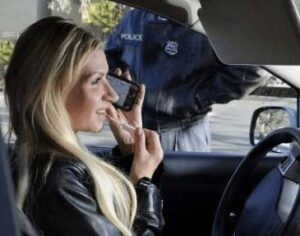In Texas, a driving while intoxicated (DWI) conviction comes with a bevy of penalties, including the suspension of your driver’s license. Losing the ability to drive legally can severely limit what you can do, including getting yourself to work or school or taking care of essential household duties.
 The driver’s license suspension period depends on several factors, such as your criminal history and the severity of the offense.
The driver’s license suspension period depends on several factors, such as your criminal history and the severity of the offense.
Under Texas Transportation Code § 521.344, the suspension periods are as follows:
- First DWI offense: 90 days to 1 year
- Second or third DWI or first intoxication manslaughter offense: 180 days to 2 years
The suspension period begins within 30 days of your conviction.
WHAT IS AN OCCUPATIONAL LICENSE?
Losing your driving privileges for any length of time can be detrimental. Fortunately, Texas offers what is called an occupational (or essential needs) license. If a judge determines that you are eligible for an occupational driver’s license (ODL), you will be able to drive lawfully during the period of suspension. However, you will be limited on where you can go.
“Essential need” means a person needs to use a vehicle to:
- Get to work
- Get to school
- Take care of essential household duties
To apply for an ODL, you must submit a petition to the court explaining why you need to drive during the period of suspension. Your case will be set for a hearing, where a judge will determine whether there is an essential need and what exactly yours is. If the ODL is granted, you must obtain and maintain insurance on your vehicle. You may also be required to submit periodically to alcohol or controlled substances testing.
If you are granted an ODL but operate your vehicle outside the court-ordered restrictions, you may be charged with a Class B misdemeanor. On top of a jail term of up to 180 days and/or a maximum fine of $2,000, you also face having your ODL revoked.
The ODL process differs slightly if, upon your DWI conviction, the court ordered you to install an Ignition Interlock Device (IID) on your vehicle. An IID is a breath analysis mechanism. Before you can start your car, you must blow into the device. If any alcohol is detected in your breath, your vehicle will not start.
If you have an IID on your car, the judge hearing your ODL case will not have to determine that an essential need exists. Instead, you may be required only to show proof of insurance and of the installation of the IID on your vehicle.
HOW DO I REINSTATE MY DRIVING PRIVILEGES?
Your driver’s license is not automatically reinstated after your suspension period is over. You must take specific steps to get it back. Generally, you are required to submit compliance documents to the Department of Public Safety and pay reinstatement fees. The actual requirements you must fulfill will depend on your specific case. Thus, you must check with the DPS about the process for getting your driving privileges back.
SPEAK WITH A DWI ATTORNEY ABOUT YOUR CASE
Being without driving privileges can create numerous obstacles in your life and make it difficult for you to provide for yourself or your family. If you have been accused of driving while intoxicated in or around Dallas, our team at Deandra Grant Law is ready to fight your charge.
Schedule a consultation by calling us at (214) 225-7117 or contacting us online today.
